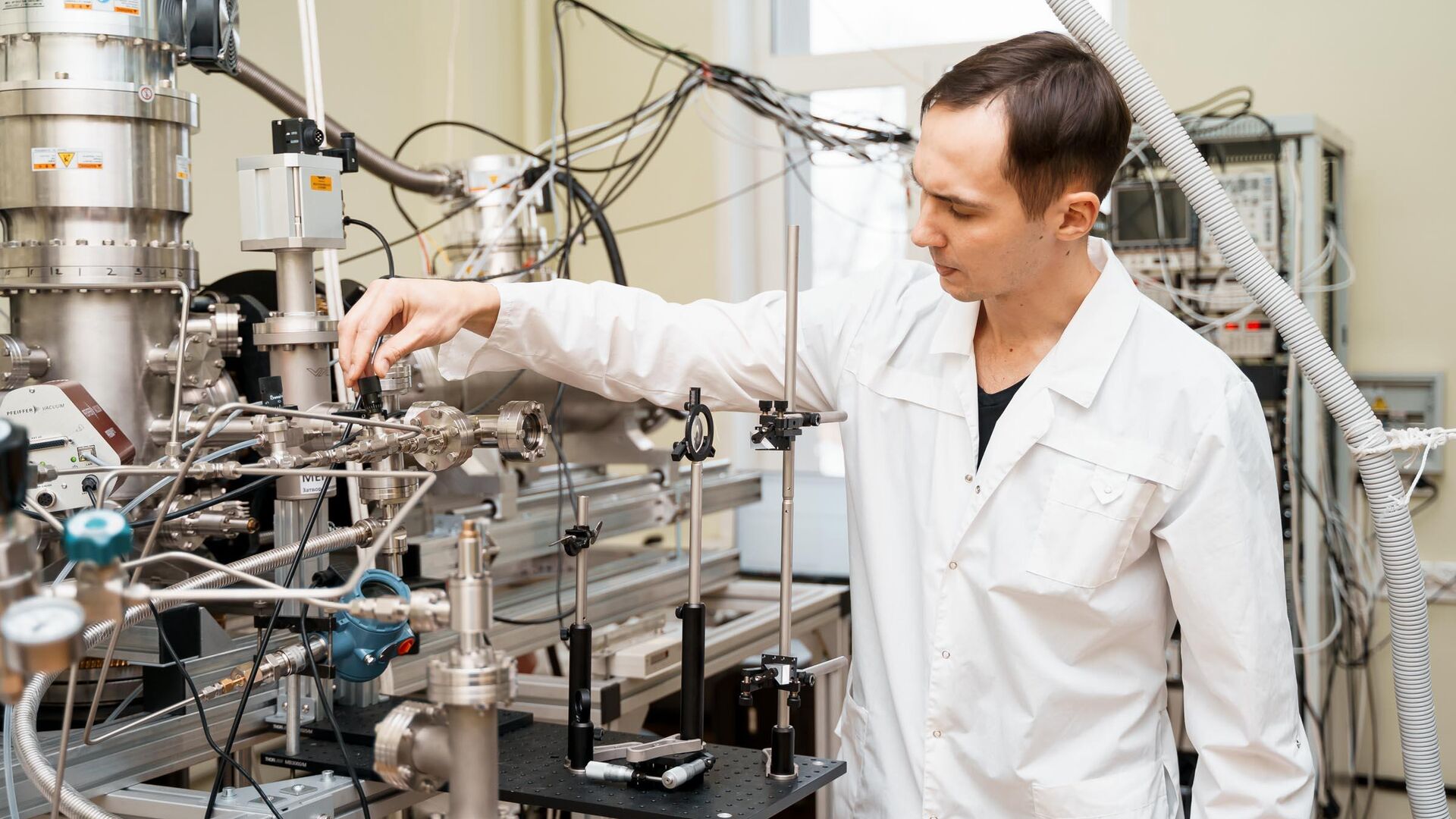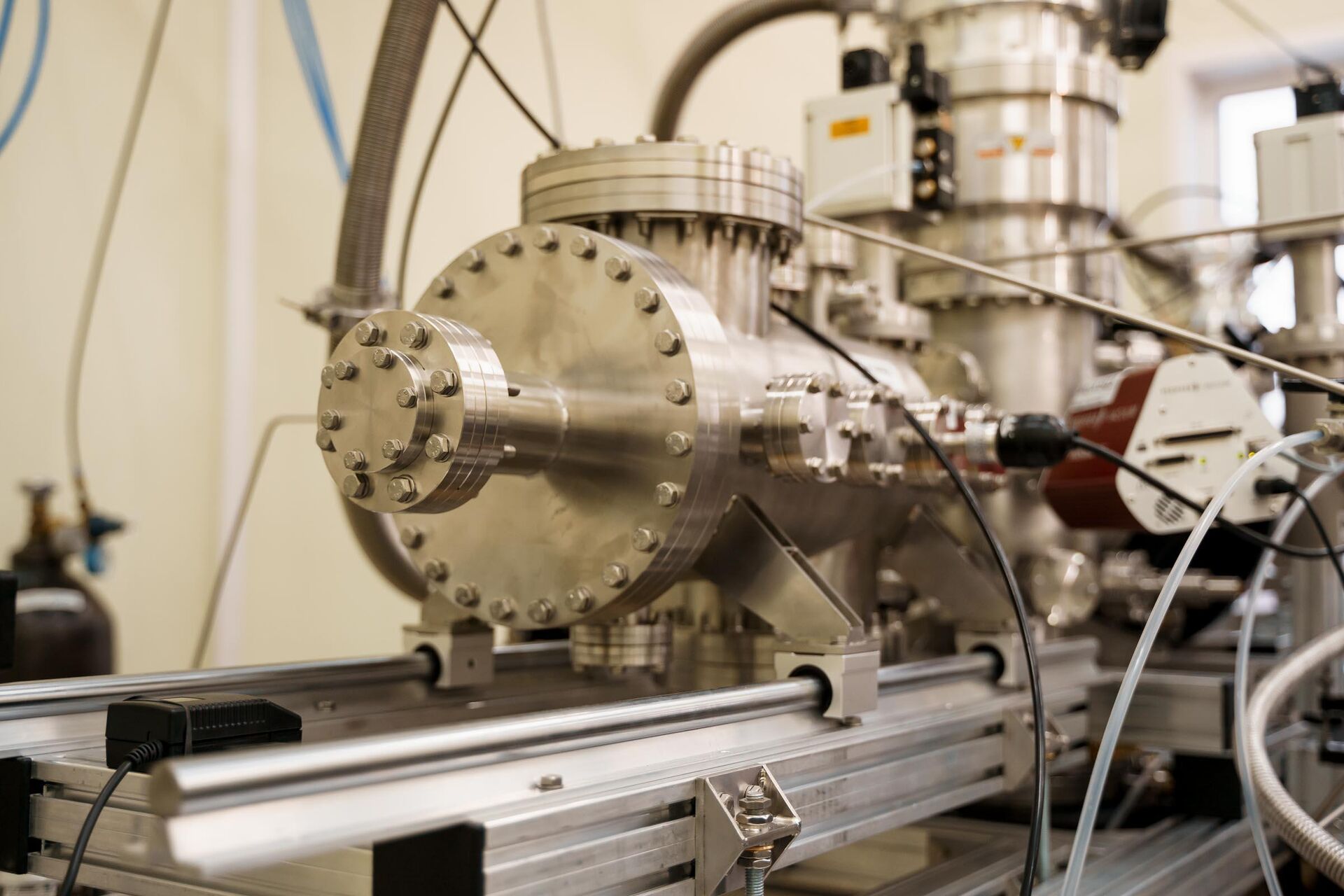https://sputnikglobe.com/20241002/scientists-take-new-step-toward-unraveling-origins-of-life-1120365528.html
Scientists Take New Step Toward Unraveling Origins of Life
Scientists Take New Step Toward Unraveling Origins of Life
Sputnik International
An organic compound that plays an important role in the origin of life has been synthesized for the first time by scientists from Samara National Research University as part of an international team under conditions close to space ice.
2024-10-02T04:30+0000
2024-10-02T04:30+0000
2024-10-02T04:30+0000
beyond politics
russia
science & tech
organic chemistry
acid
samara
russian academy of sciences (ras)
https://cdn1.img.sputnikglobe.com/img/07e8/0a/01/1120374322_0:125:2400:1475_1920x0_80_0_0_375249ea88c70cffb041255f5a2ffd77.jpg
The authors believe the synthesis of the simplest organics in conditions simulating space ice will help to find a clue to the emergence of organic life in our universe. Ketoaldehydes are key intermediates in biochemical processes, including the metabolism of carbohydrates, lipids and amino acids. Therefore, they may play an important role in the prebiotic synthesis of key biomolecules essential for the origin of life. However, to date, the mechanisms of their formation remain unclear to researchers.Scientists at Samara University, named after academician S. P. Korolev, for the first time synthesized the simplest ketoaldehyde - methylglyoxal (CH3C(O)CHO) in conditions close to space.The researchers used time-of-flight mass spectrometry with photoionization by vacuum ultraviolet radiation to evaluate the result of the synthesis.According to the researchers, they have for the first time obtained experimental evidence of hydrogen atom transfer inside a ketoaldehyde molecule in interstellar ice analogs. This expands scientists' fundamental knowledge of how ketoaldehydes and their derivatives can be synthesized in deep space.The results were published in the Physical Chemistry Chemical Physics journal.
https://sputnikglobe.com/20240910/elements-to-control-terahertz-laser-radiation-created-in-russia-1120097480.html
russia
samara
Sputnik International
feedback@sputniknews.com
+74956456601
MIA „Rossiya Segodnya“
2024
Sputnik International
feedback@sputniknews.com
+74956456601
MIA „Rossiya Segodnya“
News
en_EN
Sputnik International
feedback@sputniknews.com
+74956456601
MIA „Rossiya Segodnya“
Sputnik International
feedback@sputniknews.com
+74956456601
MIA „Rossiya Segodnya“
origins of life, samara state university, organics, organics acid, physical chemistry
origins of life, samara state university, organics, organics acid, physical chemistry
Scientists Take New Step Toward Unraveling Origins of Life
An organic compound that plays an important role in the origin of life has been synthesized for the first time by scientists from Samara National Research University as part of an international team under conditions close to space ice.
The
authors believe the synthesis of the simplest organics in conditions simulating space ice will help to find a clue to the emergence of organic life in our universe.
Ketoaldehydes are key intermediates in biochemical processes, including the metabolism of carbohydrates, lipids and amino acids. Therefore, they may play an important role in the prebiotic synthesis of key biomolecules essential for the origin of life. However, to date, the mechanisms of their formation remain unclear to
researchers.

10 September 2024, 13:54 GMT
Scientists at Samara University, named after academician S. P. Korolev, for the first time synthesized the simplest ketoaldehyde - methylglyoxal (CH
3C(O)CHO) in conditions close to
space.
The team was able to undertake the effort by irradiating ice, consisting of carbon monoxide and acetaldehyde, with a stream of electrons in a deep vacuum at liquid helium temperatures.
The
researchers used time-of-flight mass spectrometry with photoionization by vacuum ultraviolet radiation to evaluate the result of the synthesis.
“The findings allow us to consider the synthesized substances as promising candidates for future astronomical searches. After synthesis in cold molecular clouds, methylglyoxal can serve as a key precursor of sugars, sugar acids and amino acids,” said Ivan Antonov, associate professor at the Department of Physics at Samara University.
According to the researchers, they have for the first time obtained
experimental evidence of hydrogen atom transfer inside a ketoaldehyde molecule in interstellar ice analogs. This expands scientists' fundamental knowledge of how ketoaldehydes and their derivatives can be synthesized in deep space.
“In the future, we will continue to investigate the formation of complex molecules from simple molecules in the conditions of outer space to build a model of the chemical evolution of the universe. We would like to answer key questions: could the substances necessary for the evolution of life have been synthesized under cosmic conditions? What mechanisms lead to the formation of these substances? Ultimately, how unique is the existence of intelligent life in the universe?” Antonov explained.
The research was carried out on a unique research facility for studying chemical processes in deep space, created at the Center for Laboratory Astrophysics of the Samara Branch of P.N. Lebedev Physical Institute of the Russian Academy of Sciences with the support of Megagrant No. 075-15-2021-597.
The results were published in the
Physical Chemistry Chemical Physics journal.




